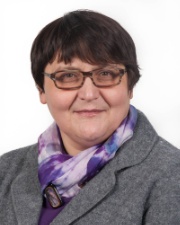Department of Organic Chemistry PřF UP cooperates long-term with a number of foreign universities and institutions. Mutual cooperation has already provided a number of significant grants, scientific publications or patents and has confirmed our competitiveness and application worldwide.
University of Innsbruck (Austria): Department of Organic Chemistry
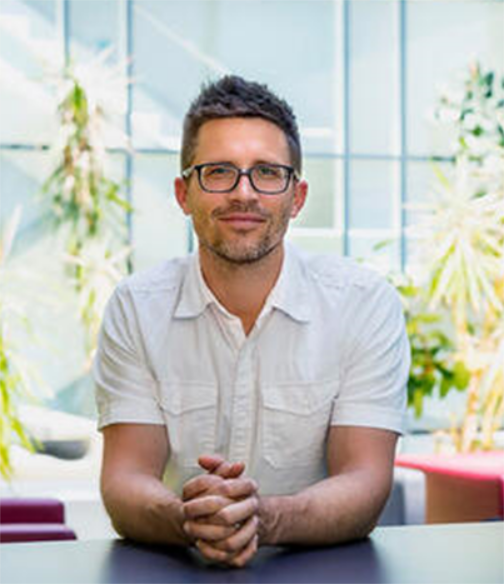 Professor Magauer’s research group is focused on synthesizing complex natural products using organic chemistry. Due to their complexity, these molecules have traditionally been challenging to use in medicine or medicinal chemistry. His research program aims to discover, design, and develop new, highly selective, and efficient reactions for synthesising various natural products and their analogues. Professor Magauer is a leader in the chemistry of natural products and translates his research into applications for novel drug development (e.g., antibiotics, anti-cancer drugs) and agrochemistry (e.g., pesticides). His close collaborations with prominent universities and industry companies, such as Bayer or Syngenta, distinguish him as a forefront figure in synthetic organic chemistry.
Professor Magauer’s research group is focused on synthesizing complex natural products using organic chemistry. Due to their complexity, these molecules have traditionally been challenging to use in medicine or medicinal chemistry. His research program aims to discover, design, and develop new, highly selective, and efficient reactions for synthesising various natural products and their analogues. Professor Magauer is a leader in the chemistry of natural products and translates his research into applications for novel drug development (e.g., antibiotics, anti-cancer drugs) and agrochemistry (e.g., pesticides). His close collaborations with prominent universities and industry companies, such as Bayer or Syngenta, distinguish him as a forefront figure in synthetic organic chemistry.
Publication list with Thomas Magauer
UNIVERSITY OF CAMBRIDGE (UK) – YUSUF HAMIED DEPARTMENT OF CHEMISTRY
 Professor David Spring’s group focuses on innovative research in the fields of drug discovery and chemical biology. Their research includes the development of new biotherapeutics, innovative peptide-based drugs, and advanced synthetic methodologies for both small molecules and larger conjugates. They also address antibiotic resistance through the development of new antibiotics, translate research into the commercial sector via spin-outs, and build a diverse chemical library for drug screening. Additionally, their research focuses on the development of antibody-drug conjugates (ADCs), which combine the targeting capabilities of antibodies with the therapeutic potential of drugs for more effective treatment of various diseases.
Professor David Spring’s group focuses on innovative research in the fields of drug discovery and chemical biology. Their research includes the development of new biotherapeutics, innovative peptide-based drugs, and advanced synthetic methodologies for both small molecules and larger conjugates. They also address antibiotic resistance through the development of new antibiotics, translate research into the commercial sector via spin-outs, and build a diverse chemical library for drug screening. Additionally, their research focuses on the development of antibody-drug conjugates (ADCs), which combine the targeting capabilities of antibodies with the therapeutic potential of drugs for more effective treatment of various diseases.
Publication list with David Spring
University of Antwerp (Belgium) – Faculty of Pharmaceutical, Biomedical and Veterinary Sciences
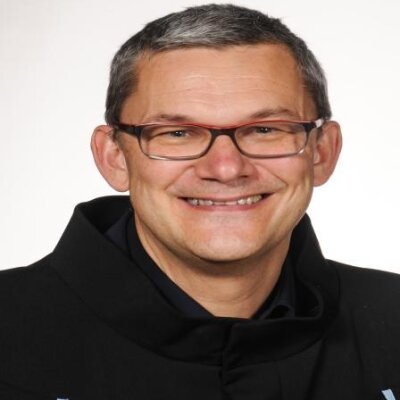 The Laboratory of Microbiology, Parasitology and Hygiene (LMPH) is an interdepartmental research group at the Faculty of Pharmaceutical, Biomedical and Veterinary Sciences at the University of Antwerp. LMPH can be divided into two major domains: Parasitology and Respiratory Infections. Within the respiratory infections group led by prof. Paul Cos we have long-term cooperation with Paul Cos on developing new antituberculosis drugs.
The Laboratory of Microbiology, Parasitology and Hygiene (LMPH) is an interdepartmental research group at the Faculty of Pharmaceutical, Biomedical and Veterinary Sciences at the University of Antwerp. LMPH can be divided into two major domains: Parasitology and Respiratory Infections. Within the respiratory infections group led by prof. Paul Cos we have long-term cooperation with Paul Cos on developing new antituberculosis drugs.
Publication list with Paul Cos
IMC University of Applied Sciences Krems (Rakousko): Department of Science and Technology
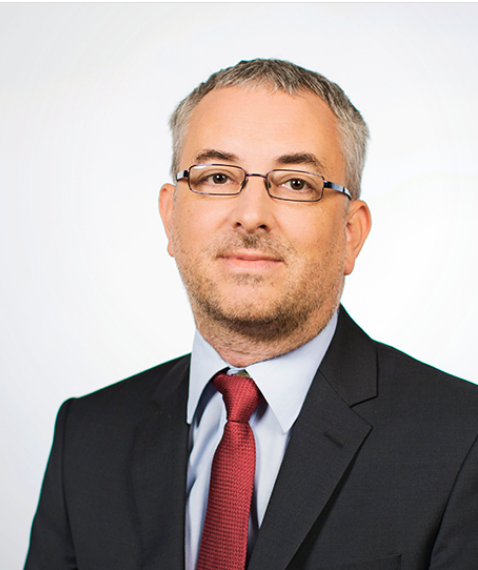 The cooperation with IMC University of Applied Science in Austria started according to PhD internship of our students under the supervision of prof. Uwe Rinner. His area of interest is a range of organic chemistry topics, extending from the synthesis of biologically active compounds to the production of functional prepolymers and the development of new synthesis methods. The institute also uses biotechnological processes to produce starting materials to manufacture highly functionalized products. These fermenting processes convert aromatic compounds into the corresponding cyclohexanediols, which are valuable chiral components for synthesis projects.
The cooperation with IMC University of Applied Science in Austria started according to PhD internship of our students under the supervision of prof. Uwe Rinner. His area of interest is a range of organic chemistry topics, extending from the synthesis of biologically active compounds to the production of functional prepolymers and the development of new synthesis methods. The institute also uses biotechnological processes to produce starting materials to manufacture highly functionalized products. These fermenting processes convert aromatic compounds into the corresponding cyclohexanediols, which are valuable chiral components for synthesis projects.
Internship list in Uwe Rinner group
Vrije Universiteit Brussel (Belgium) – Department of Chemistry
 Collaboration with Vrije Universiteit Brussel was established with prof. Frank De Proft and F. De Vleeschouwer. Originally, the joint research focused on DFT and ab initio calculations of radicals with a major interest in the oxidoreduction properties of plant secondary metabolites (phenyl propanoids). More recently, we have focused on the development of joint theoretical (DFT calculations) and experimental studies that would allow us to predict pKa values of novel hydrogen-bonding donors suitable for organocatalysis.
Collaboration with Vrije Universiteit Brussel was established with prof. Frank De Proft and F. De Vleeschouwer. Originally, the joint research focused on DFT and ab initio calculations of radicals with a major interest in the oxidoreduction properties of plant secondary metabolites (phenyl propanoids). More recently, we have focused on the development of joint theoretical (DFT calculations) and experimental studies that would allow us to predict pKa values of novel hydrogen-bonding donors suitable for organocatalysis.
Publications list with Frank De Proft
University of Notre Dame (IN, USA): Department of Chemistry and Biochemistry
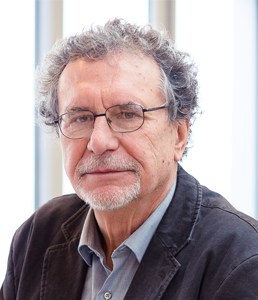 Collaboration with Notre Dame University, Department of Chemistry and Biochemistry was launched with prof. Viktor Krchňák, a specialist in combinatorial chemistry, especially for solid phase synthesis. Many students and staff from the Department of Organic Chemistry at Palacky University have undergone research internships in their research group to gain skills and knowledge in solid phase synthesis and combinatorial chemistry. Currently he focuses on two research topics. The first one is dedicated to the development of synthetic pathways to afford diverse chiral heterocyclic compounds with 3D architectures and complete control of stereochemistry, that structurally mimics a complex natural substanceS and contains connected / bridged medium and large circles. The second project focuses on solid-phase synthesis of heterogeneous nitrogen compounds qualified as privileged structures. The key transformation is the displacement of the aryl group by intramolecular arylation of advanced solid-binding intermediates containing the 2-nitrobenzenesulfonamide moiety.
Collaboration with Notre Dame University, Department of Chemistry and Biochemistry was launched with prof. Viktor Krchňák, a specialist in combinatorial chemistry, especially for solid phase synthesis. Many students and staff from the Department of Organic Chemistry at Palacky University have undergone research internships in their research group to gain skills and knowledge in solid phase synthesis and combinatorial chemistry. Currently he focuses on two research topics. The first one is dedicated to the development of synthetic pathways to afford diverse chiral heterocyclic compounds with 3D architectures and complete control of stereochemistry, that structurally mimics a complex natural substanceS and contains connected / bridged medium and large circles. The second project focuses on solid-phase synthesis of heterogeneous nitrogen compounds qualified as privileged structures. The key transformation is the displacement of the aryl group by intramolecular arylation of advanced solid-binding intermediates containing the 2-nitrobenzenesulfonamide moiety. 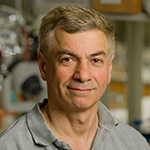 Later cooperation was extended to the research group prof. Shahriar Mobashery. Its central theme is the study of antibiotic resistance and the development of new antibiotics. Effective synthesis of alkenes using Wittig reaction with silver carbonate or regioselectivity of amination to 5-substituted 2,4-dichloropyrimidine using tertiary amines as nucleophiles was studied.
Later cooperation was extended to the research group prof. Shahriar Mobashery. Its central theme is the study of antibiotic resistance and the development of new antibiotics. Effective synthesis of alkenes using Wittig reaction with silver carbonate or regioselectivity of amination to 5-substituted 2,4-dichloropyrimidine using tertiary amines as nucleophiles was studied. 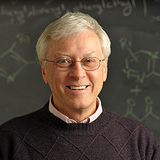 Významná kooperace byla navázána i s dalším světovým specialistou na vývoj a výzkum nových antibiotik prof. Marvinem J. Millerem. Significant cooperation was also established with another world specialist for the development and research of new antibiotics, prof. Marvin J. Miller. The long-term topic of his research group is the study of the regioselective hetero Diels-Alder reaction of arylnitroso compounds leading to oxazine derivatives with simultaneous chiral analysis of target compounds.
Významná kooperace byla navázána i s dalším světovým specialistou na vývoj a výzkum nových antibiotik prof. Marvinem J. Millerem. Significant cooperation was also established with another world specialist for the development and research of new antibiotics, prof. Marvin J. Miller. The long-term topic of his research group is the study of the regioselective hetero Diels-Alder reaction of arylnitroso compounds leading to oxazine derivatives with simultaneous chiral analysis of target compounds.
Publications list with Viktor Krchňák
Publications list with Shahriar Mobashery
Publications list with Marvin J. Miller
Jagiellonian University Kraków (Poland): Faculty of Pharmacy
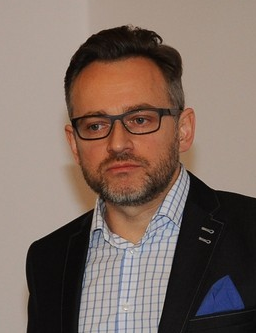 Cooperation with Jagiellonian University is targeted to synthesis and study of novel ligands of certain molecular targets. Currently there are two fields of interest. The first area is devoted to research and development of compounds with agonistic/antagonistic effect against specific serotonine receptors. The second field is devoted to the research for dual inhibitors of selected phosphodiesterases. The key collaborator in both fields is Assoc. Prof. Pawel Zajdel. The joint aim is identification of drug candidates for treatment of neurodegenerative diseases and also finding derivatives acting as potent and selective anti-inflammatory agents or antidepressants. Recently, we discovered a novel class of serotonine ligands which were protected by the international patent. Their advanced preclinical development is in progress.
Cooperation with Jagiellonian University is targeted to synthesis and study of novel ligands of certain molecular targets. Currently there are two fields of interest. The first area is devoted to research and development of compounds with agonistic/antagonistic effect against specific serotonine receptors. The second field is devoted to the research for dual inhibitors of selected phosphodiesterases. The key collaborator in both fields is Assoc. Prof. Pawel Zajdel. The joint aim is identification of drug candidates for treatment of neurodegenerative diseases and also finding derivatives acting as potent and selective anti-inflammatory agents or antidepressants. Recently, we discovered a novel class of serotonine ligands which were protected by the international patent. Their advanced preclinical development is in progress.
Publications list with Pawel Zajdel
Johannes Kepler University, Austria – Institute of Organic Chemistry
 Collaboration with JKU was established with prof. Mario Waserem and his group, and the focus was on the development of novel organocatalysts and reactions promoted with organocatalysts. The main emphasis is given to the design and development of the reaction catalysts; however, novel reaction disclosure is not neglected.
Collaboration with JKU was established with prof. Mario Waserem and his group, and the focus was on the development of novel organocatalysts and reactions promoted with organocatalysts. The main emphasis is given to the design and development of the reaction catalysts; however, novel reaction disclosure is not neglected.
Publications list with Mario Waser
Indiana University – Purdue University Indianapolis (IN, USA): Department of Chemistry and Chemical Biology
 Collaboration with prof. William L. Scott of the Department of Chemistry and Chemical Biology was established through a series of invited lectures for students and staff of the Faculty of Science UP. Activities in his research are based on the systematic integration of students into the field of drug development. His strategy is based on the international D3 (Distributed Drug Discovery) project, to which our two students have been accepted in the past. The strategy of the D3 project is about simple synthesis of new compounds using inexpensive equipment and their subsequent biological screening within the educational process.
Collaboration with prof. William L. Scott of the Department of Chemistry and Chemical Biology was established through a series of invited lectures for students and staff of the Faculty of Science UP. Activities in his research are based on the systematic integration of students into the field of drug development. His strategy is based on the international D3 (Distributed Drug Discovery) project, to which our two students have been accepted in the past. The strategy of the D3 project is about simple synthesis of new compounds using inexpensive equipment and their subsequent biological screening within the educational process.
University of Tromsø (Norway): Institute of Pharmacy
The Department of Organic Chemistry has been working with prof. Natasou Skalko-Basnet of the Department of Pharmacy, University of Tromsø, Norway. The research cooperation was established on the basis of a joint EEA grant aimed at increasing the bioavailability of poorly soluble new biologically active substances. Within the collaboration, a study was developed to increase the solubility and stability of derivatives of 3-hydroxyquinoline-4(1H)-ones with promising cytostatic and cancerostatic activity.
Publications list with Natasa Skalko-Basnet
University of Southern Denmark (Denmark): Department of Physics and Chemistry
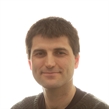 Cooperation with the University of Southern Denmark takes place both on the scientific and educational level within the Erasmus + program. Our partner is prof. Poul Nielsen, whose research group has long been involved in the synthesis and application of modified oligonucleotides (DNA-analogues). One of the research topics is C-branched oligonucleotides and conformationally restricted DNA analogues such as the recently discovered Locked Nucleic Acid (LNA), which has unprecedented binding affinity for complementary DNA and RNA compared to DNA analogues known so far.
Cooperation with the University of Southern Denmark takes place both on the scientific and educational level within the Erasmus + program. Our partner is prof. Poul Nielsen, whose research group has long been involved in the synthesis and application of modified oligonucleotides (DNA-analogues). One of the research topics is C-branched oligonucleotides and conformationally restricted DNA analogues such as the recently discovered Locked Nucleic Acid (LNA), which has unprecedented binding affinity for complementary DNA and RNA compared to DNA analogues known so far.
Publications list with Poul Nielsen
University of the Sunshine Coast (Australia): Faculty of Science, Health, Education and Engineering
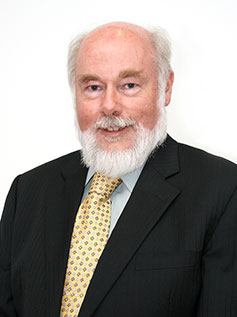 Prof. John Bartlett from the University of Sunshine Coast of Australia (USC) visited the Department of Organic Chemistry with a lecture about nanoparticles of silicon dioxide designed to transport pharmaceuticals and began collaborating with our workplaces. His specialization includes, among others, “sol-gel” chemistry for the synthesis of nanostructured materials, especially at temperatures compatible with polymeric and biological substrates. During cooperation nano-silicates suitable for the transmission of synthesized substances at our center in Olomouc are being developed.
Prof. John Bartlett from the University of Sunshine Coast of Australia (USC) visited the Department of Organic Chemistry with a lecture about nanoparticles of silicon dioxide designed to transport pharmaceuticals and began collaborating with our workplaces. His specialization includes, among others, “sol-gel” chemistry for the synthesis of nanostructured materials, especially at temperatures compatible with polymeric and biological substrates. During cooperation nano-silicates suitable for the transmission of synthesized substances at our center in Olomouc are being developed.
Publications list with John Bartlett
Université catholique de Louvain, Belgium – Institute of Condensed Matter and Nanosciences
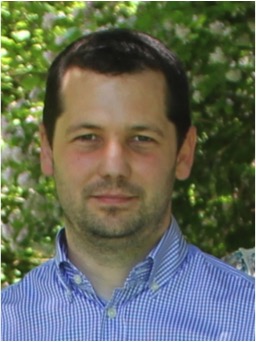 In cooperation with prof. Raphaël Robiette is investigating Julie’s reaction. A study of the E / Z selectivity of Julia olefination on aromatic aldehydes has been published successfully. Currently, a DFT calculation project is being developed to focus on a mechanistic study of modified Julie’s reaction and related olefination protocols.
In cooperation with prof. Raphaël Robiette is investigating Julie’s reaction. A study of the E / Z selectivity of Julia olefination on aromatic aldehydes has been published successfully. Currently, a DFT calculation project is being developed to focus on a mechanistic study of modified Julie’s reaction and related olefination protocols.

